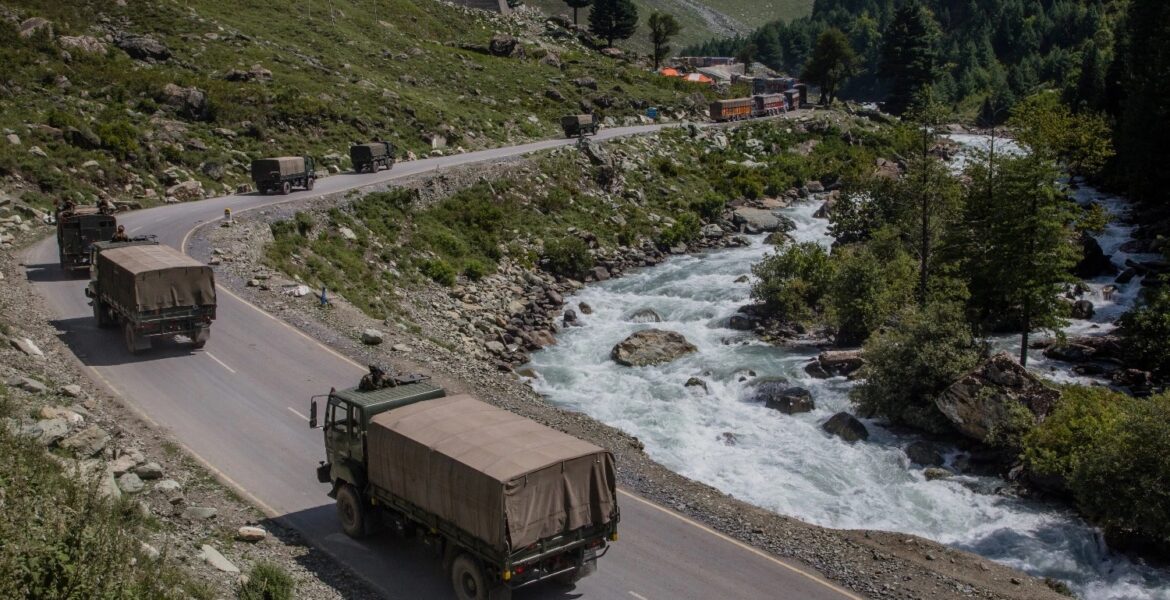In 1937, Chinese revolutionary leader Mao Zedong told hagiographer Edgar Snow, "If the Koreans wish to break away from the chains of Japanese imperialism, we will extend them our enthusiastic help in their struggle for independence. The same thing applies to [Taiwan]."
Someone might want to tell Chinese President Xi Jinping that. Following House Speaker Nancy Pelosi's (D-CA) visit to Taiwan , Xi doubled down on threats to invade the island nation. Never mind the fact that Taiwan has never been part of China . "We will not renounce the use of force, and we reserve the option of taking all necessary measures," a new Chinese Communist Party white paper subsequently declared. Beijing may feel its bluster works. Four times now, President Joe Biden has promised to defend Taiwan, only to have his aides then walk back his statements.
Xi’s disdain toward Taiwanese self-rule is real, but he might mean such bluster to distract the United States from other territorial goals. After all, Xi knows an attack on Taiwan could mean wider war. Xi would likely have to kneecap Singapore , where the U.S. Navy keeps the bulk of its JP-5 aviation fuel, to prevent carrier-based warplanes from coming to Taiwan’s defense. He might also need to launch a preemptive strike on Japan, which increasingly sees Taiwan as the first line of its own defense.
Xi’s ambitions might be further west. Consider Bhutan, for example: In 2017, the People’s Liberation Army pushed into Bhutanese territory in the Doklum Valley, where the borders of India, China, and the mountainous kingdom of Bhutan converge. While Chinese forces agreed to withdraw after the Indian Army came to Bhutan’s defense, over subsequent years, China resumed its incursion. Facing no consequence, earlier this year, Xi again ordered Chinese troops to push several miles into Bhutan, which is peaceful and its army negligible. Xi may want to do to Bhutan what Mao did to Tibet — that is, erase its independence. Nor is Bhutan alone. Chinese troops recently moved Nepalese border posts to expand Chinese territory at that Himalayan country’s expense, though it appears Beijing believes it can simply co-opt Nepalese politicians to undermine that country’s sovereignty, much as it already has Pakistan.
Then there is Ladakh, an Indian union territory. Sixty years ago, while the Cuban missile crisis distracted the U.S., China invaded Aksai Chin, a Maryland-sized portion of Ladakh. Not only does the People’s Liberation Army continue to occupy that territory, but Xi seeks to expand his conquest, even at the risk of war with India.
In October 2022, I drove across the 17,480-foot Tanglang La Pass to visit Pangong Lake, which spans the India-China border. It is a tense area. In May 2020, Chinese troops set upon Indian soldiers across the Line of Actual Control. A month later, Chinese forces attacked Indian troops in the nearby Galwan Valley, bludgeoning them with barbed wire-wrapped clubs and stabbing them with shivs. Chinese troops continue to force nomads onto Indian territory to justify Chinese claims, and the People’s Liberation Army builds roads and structures on Indian land. Ladakh may seem peripheral, but a Chinese push to regional capital Leh would put Chinese troops less than 400 miles from the Indian capital of New Delhi.
When China attacked Aksai Chin, it did so along two fronts more than 600 miles apart. Beijing might repeat that tactic by simultaneously attacking in Ladakh and Arunachal Pradesh, an Indian state Xi also claims . This would not only challenge India logistically, but it would be far more difficult for Washington to counter given how both fronts would be landlocked and hundreds of miles inland.
Then, of course, there is the South China Sea. The nine-dash line that Xi uses to stake China’s claim is historical fiction. For too long, however, the U.S. and regional states have emboldened China by allowing it to get away with what effectively is the largest maritime territory grab in modern history.
So make no mistake: Taiwan is in China’s sights, but it is not alone. It is necessary to deter China across the entirety of its southern border.
Michael Rubin ( @mrubin1971 ) is a contributor to the Washington Examiner's Beltway Confidential. He is a senior fellow at the American Enterprise Institute.


